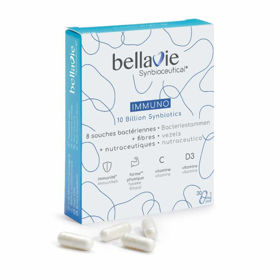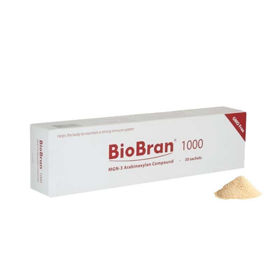Customer question:
How long does strep throat last? Anonymous customer's question
Pharmacist's answer:
The duration of strep throat can vary from person to person and depends on several factors, including the severity of the infection, the individual's immune system, and the adequacy of treatment.
Symptoms of strep throat usually begin to improve within a few days of starting antibiotic treatment if prescribed.
If antibiotics are not used, the symptoms of strep throat may slowly improve over about a week to ten days. However, the symptoms of strep throat may improve more quickly with proper care.
What is the difference between bacterial and streptococcal angina?
Bacterial angina is a broad term that includes all types of angina caused by bacteria. In contrast, streptococcal angina is a specific form of bacterial angina caused by Streptococcus pyogenes, also known as streptococcus.
The difference between bacterial angina and streptococcal angina is in the causative agent of the infection:
- Bacterial angina refers to all types of angina caused by bacteria, including various types of bacteria such as Streptococcus, Staphylococcus, Haemophilus, and others. Bacterial angina may also be caused by gram-negative bacteria such as Moraxella catarrhalis or Fusobacterium.
- Streptococcal angina is a specific form of bacterial angina caused by the bacterium Streptococcus pyogenes, also known as group A streptococcus. Streptococcal angina is the most common form of bacterial angina and is usually treated with antibiotics.
li>
In addition, some characteristic symptoms, such as sore throat, fever, enlarged lymph nodes in the neck, and the presence of whitish deposits or ulcers on the tonsils, can also be observed with streptococcal angina. Nevertheless, an accurate diagnosis and differentiation between different types of angina often require a medical examination and sometimes laboratory tests, such as a throat swab.
Is streptococcal angina treated with antibiotics?
Yes, strep throat is usually treated with antibiotics. This is because Streptococcus pyogenes, also known as group A streptococcus, causes it and is sensitive to certain antibiotics. Treatment with antibiotics helps destroy such bacteria and prevent possible complications such as otitis media, sinusitis, tonsillitis, kidney inflammation, or rheumatic fever.
The most commonly prescribed antibiotics for strep throat are penicillin or amoxicillin. In cases where an individual is allergic to penicillin, the doctor may prescribe alternative antibiotics such as azithromycin, clarithromycin, or cephalosporin. It is essential to take antibiotics as directed by your doctor and to complete the entire course of treatment, even if symptoms improve before the end of treatment. This helps prevent re-infection and reduce the risk of bacteria developing antibiotic resistance.
Can strep throat be dangerous?
Streptococcal angina can cause severe complications in some cases, so treating it correctly and on time is essential. If untreated or inadequately treated, streptococcal angina can lead to the following complications:
- Otitis media: bacteria can travel to the middle ear and cause otitis media.
- Sinusitis: bacteria can spread to the sinuses and cause sinus inflammation.
- Tonsillitis: inflammation of the tonsils can become severe and require surgical intervention.
- Inflammation of the kidneys (glomerulonephritis) is a rare but potentially severe medical condition affecting kidney function.
- Rheumatic fever is an autoimmune disease that can damage the heart, joints, skin, and brain.
- Tonsil abscess: Bacteria can cause a tonsil abscess to form, a pus-like formation that requires drainage.
If you notice symptoms of streptococcal angina or have been diagnosed with this disease, following your doctor's instructions and starting antibiotic treatment in time to prevent possible complications is essential.
Does strep throat cause swollen tonsils?
Yes, swollen tonsils are a common symptom of streptococcal angina. Streptococcal angina causes inflammation of the throat and tonsils, which can lead to swelling and redness of the tonsils. Swelling of the tonsils is often accompanied by other symptoms such as fever, painful swallowing, general malaise, more lymph nodes in the neck, and the presence of whitish deposits or ulcers on the tonsils.
However, it should be noted that tonsil swelling is not always the result of streptococcal angina. It can also be a symptom of other infections or conditions, so it is essential to consult a doctor if you notice swollen tonsils or other typical symptoms of angina.
Which bacteria causes angina?
Angina, especially streptococcal angina, is often caused by an infection with the bacterium Streptococcus pyogenes, also known as group A streptococcus. This bacterium is one of the most common causes of bacterial angina. In addition to streptococcal angina, other bacteria such as Staphylococcus aureus, Haemophilus influenzae, Moraxella catarrhalis, and others can also cause bacterial angina. It is essential to distinguish between viral and bacterial angina, as the treatment and course of the disease may differ.
Interesting reading: Which antibiotic for angina
Interesting reading: Streptococcal angina incubation period













